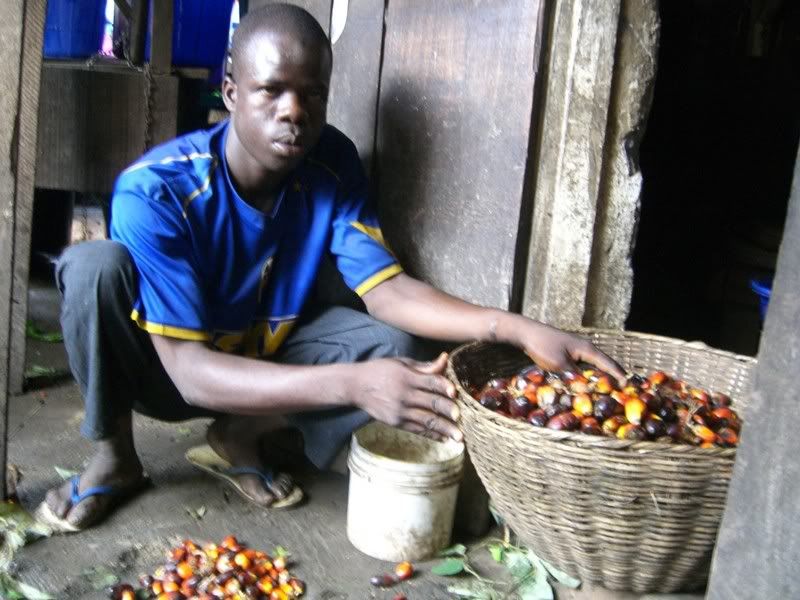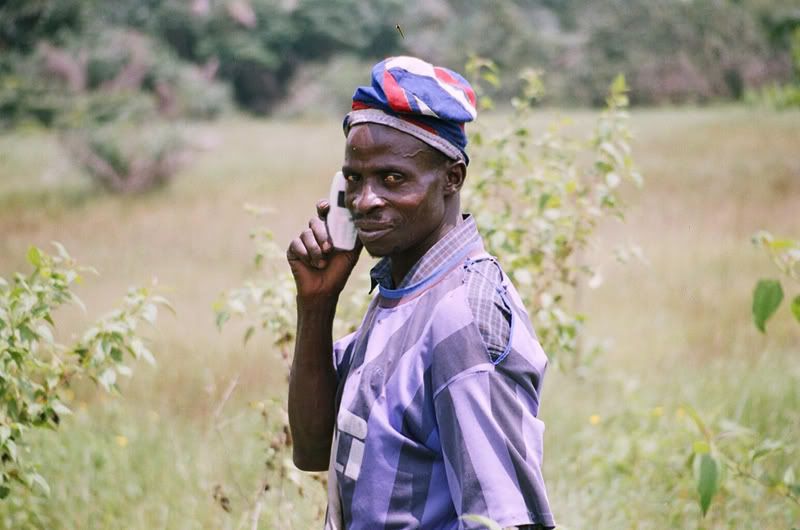Ericsson, GSMA and MTN to use biofuels to expand mobile coverage in developing world
 We have often said that bioenergy and biofuels offer opportunities to realise a new energy paradigm, based on inclusion of previously excluded, energy-poor and technology deprived groups who live at the (conceptual) fringes of societies in the South. Through decentralisation and local resource control, biofuels allow such communities to 'jump' out of poverty by creating synergies between biofuels production and other sectors and services (food production, mining, education, healthcare...).
We have often said that bioenergy and biofuels offer opportunities to realise a new energy paradigm, based on inclusion of previously excluded, energy-poor and technology deprived groups who live at the (conceptual) fringes of societies in the South. Through decentralisation and local resource control, biofuels allow such communities to 'jump' out of poverty by creating synergies between biofuels production and other sectors and services (food production, mining, education, healthcare...).An exciting example of a synergy between biofuels and high-tech in the developing world is now being implemented by Ericsson (the mobile phone manufacturer), the GSM Association and multinational telecommunications group MTN. The companies have teamed up to establish biofuels as an alternative source of power for wireless networks in remote parts of the developing world to bridge the digital divide. The three organizations have set up a pioneering project in Nigeria to demonstrate the potential of biofuels to replace diesel as a source of power for mobile base stations located beyond the reach of the electricity grid.
 Biodiesel has several important advantages over conventional diesel as a power source for base stations. Biodiesel can be produced locally, creating employment in rural areas, while reducing the need for transportation, related logistics and security. Biodiesel has a much lower impact on the environment than conventional diesel. The cleaner burning fuel results in fewer site visits and also extends the life of the base station generator, reducing operators' costs. "The early adoption of biofuel-powered mobile networks would place Africa at the forefront of a new wave of innovation that is making mobile communications affordable and accessible across the developing world," said Karel Pienaar, CTIO of the MTN Group.
Biodiesel has several important advantages over conventional diesel as a power source for base stations. Biodiesel can be produced locally, creating employment in rural areas, while reducing the need for transportation, related logistics and security. Biodiesel has a much lower impact on the environment than conventional diesel. The cleaner burning fuel results in fewer site visits and also extends the life of the base station generator, reducing operators' costs. "The early adoption of biofuel-powered mobile networks would place Africa at the forefront of a new wave of innovation that is making mobile communications affordable and accessible across the developing world," said Karel Pienaar, CTIO of the MTN Group.In a pilot project, supported by expertise and funding from the GSMA's Development Fund, Ericsson and MTN are setting up a pilot biodiesel-powered base station solution in Lagos and will later deploy biodiesel-fueled base stations in rural regions of south eastern and south western Nigeria. The three organizations are setting up a supply chain designed to benefit the local population by sourcing a variety of locally-produced crops and processing them into biofuel. Groundnuts, pumpkin seeds, jatropha, and palm oil will be used in the initial pilot tests:
 biodiesel :: bioenergy :: biofuels :: energy :: sustainability :: developing countries :: decentralisation :: mobile phones :: wireless :: digital divide :: Africa ::
biodiesel :: bioenergy :: biofuels :: energy :: sustainability :: developing countries :: decentralisation :: mobile phones :: wireless :: digital divide :: Africa :: "The extension of mobile networks into rural areas is vital to boost the social and economic welfare of the developing world," said Rob Conway, CEO of the GSMA, the global trade association for mobile operators. "Biofuels have the potential to make that happen by giving mobile operators local access to a commercially and environmentally sustainable power supply."
The GSMA and Ericsson will draw on the findings of the pilot to help operators across the developing world determine whether they can use biodiesel to power their networks in rural areas.
"In order to reach the next billion mobile users, we need to reach lower-spending segments of the population profitably," said Bert Nordberg, Executive Vice President, Sales and Marketing, Ericsson. "By using locally-produced biofuels, we could significantly lower the cost of operating mobile base stations in rural areas."
The pilot project is the first time that biofuels has been used as a power source for radio base stations. Only 25 percent of Nigeria is connected to the electricity grid. MTN has invested in Y'ellowWatts, its own power system made up of an extensive grid of generators designed to keep the entire MTN network at an optimum level of performance.
The GSMA's Development Fund was set up in October 2005 to provide consulting support to innovative pilot projects that use mobile technology to boost social, economic and environmental welfare in developing countries. Working together with mobile operators, the Fund supports easily-replicable and sustainable projects that have the potential to be widely-deployed.
Photos courtesy by Ericsson.
 -------------------
-------------------
 Spanish company Ferry Group is to invest €42/US$55.2 million in a project for the production of biomass fuel pellets in Bulgaria.
The 3-year project consists of establishing plantations of paulownia trees near the city of Tran. Paulownia is a fast-growing tree used for the commercial production of fuel pellets.
Spanish company Ferry Group is to invest €42/US$55.2 million in a project for the production of biomass fuel pellets in Bulgaria.
The 3-year project consists of establishing plantations of paulownia trees near the city of Tran. Paulownia is a fast-growing tree used for the commercial production of fuel pellets.









0 Comments:
Post a Comment
Links to this post:
Create a Link
<< Home